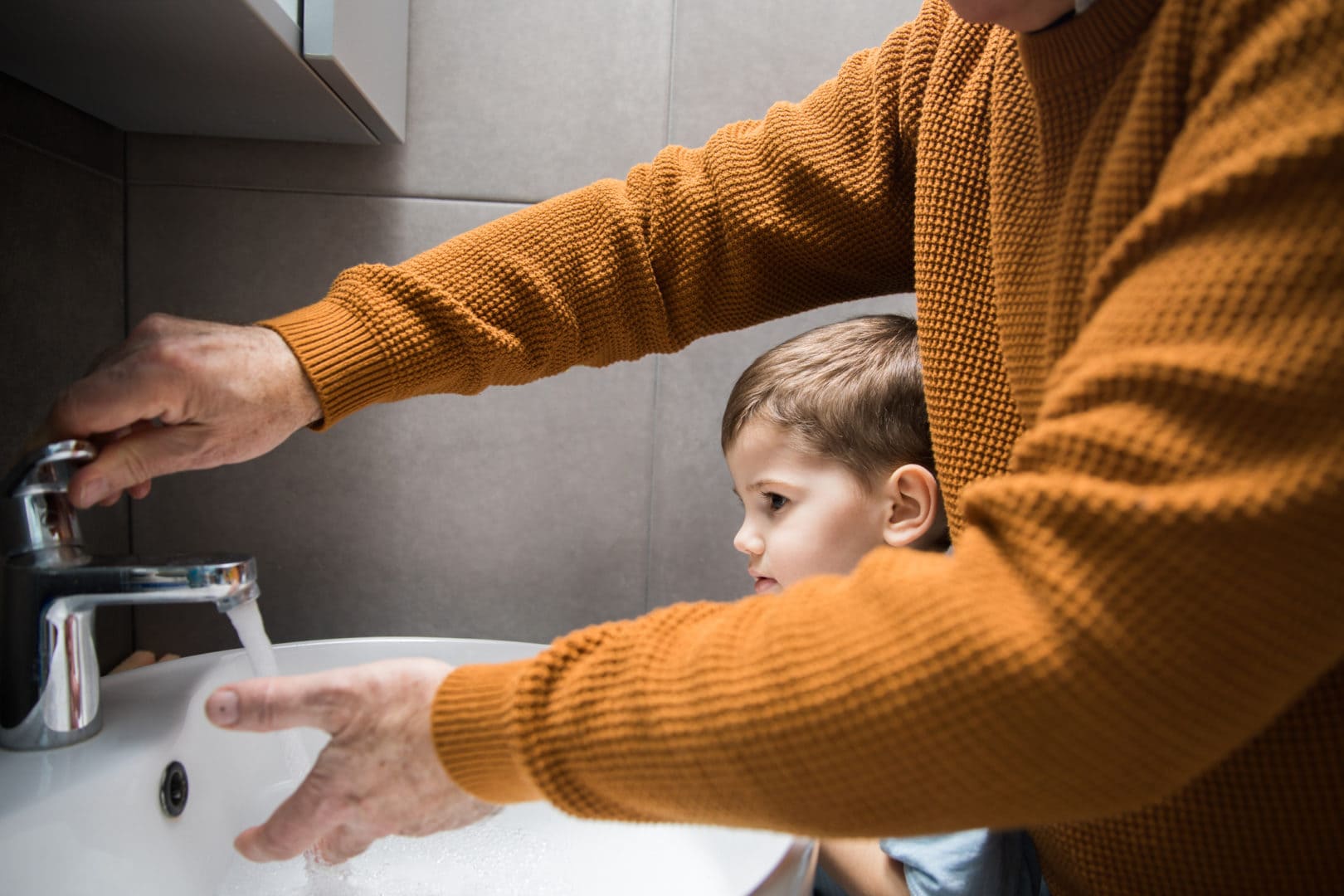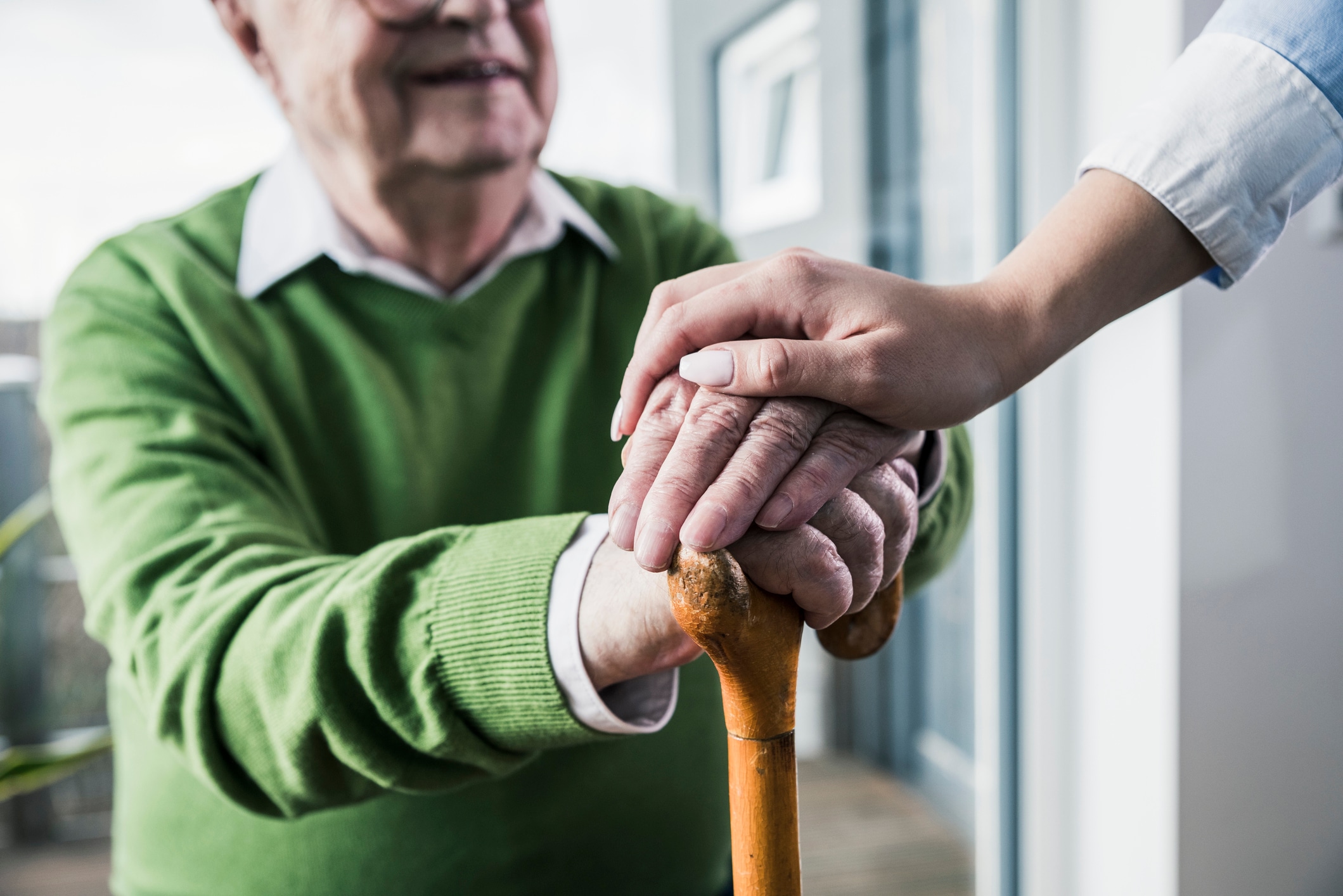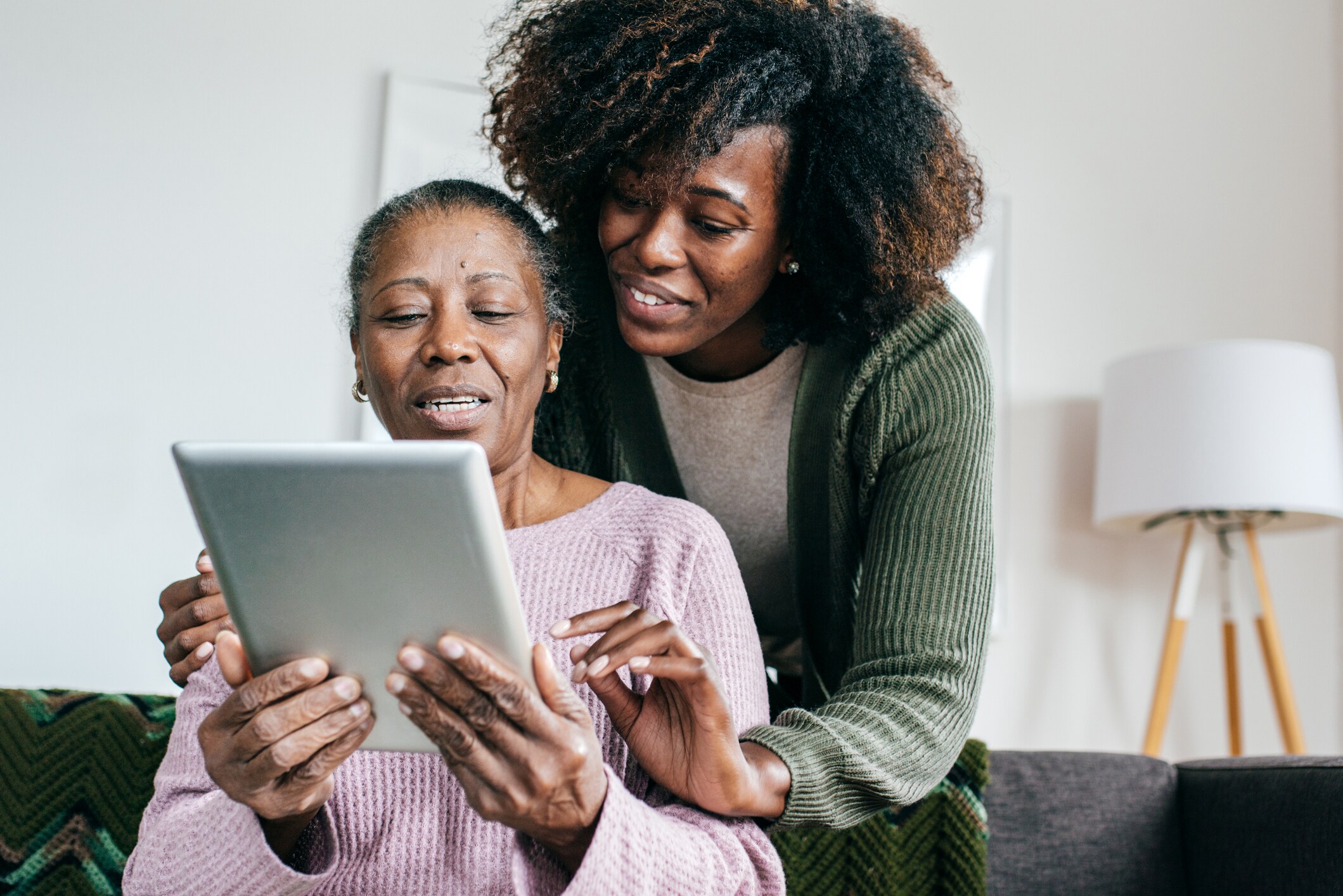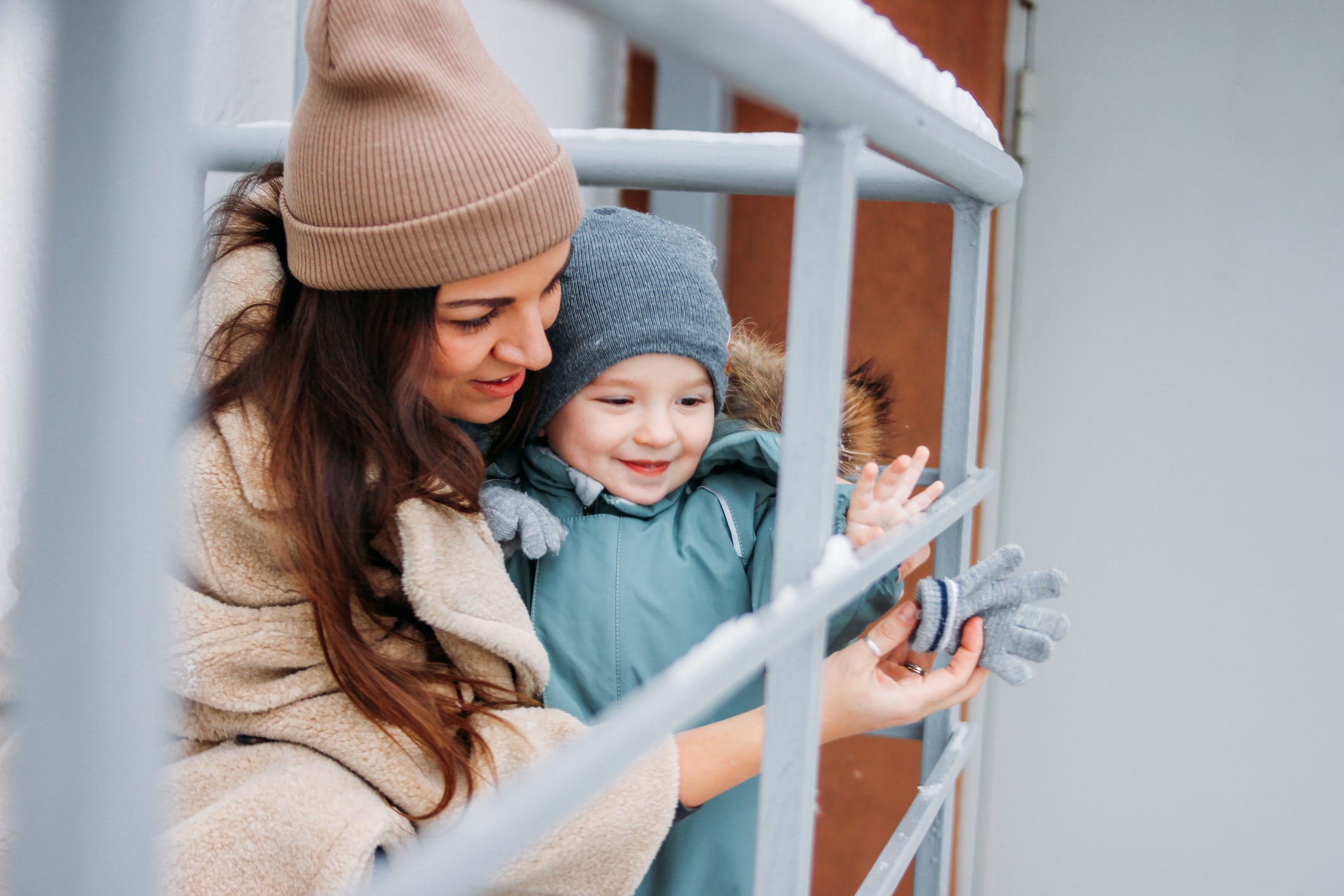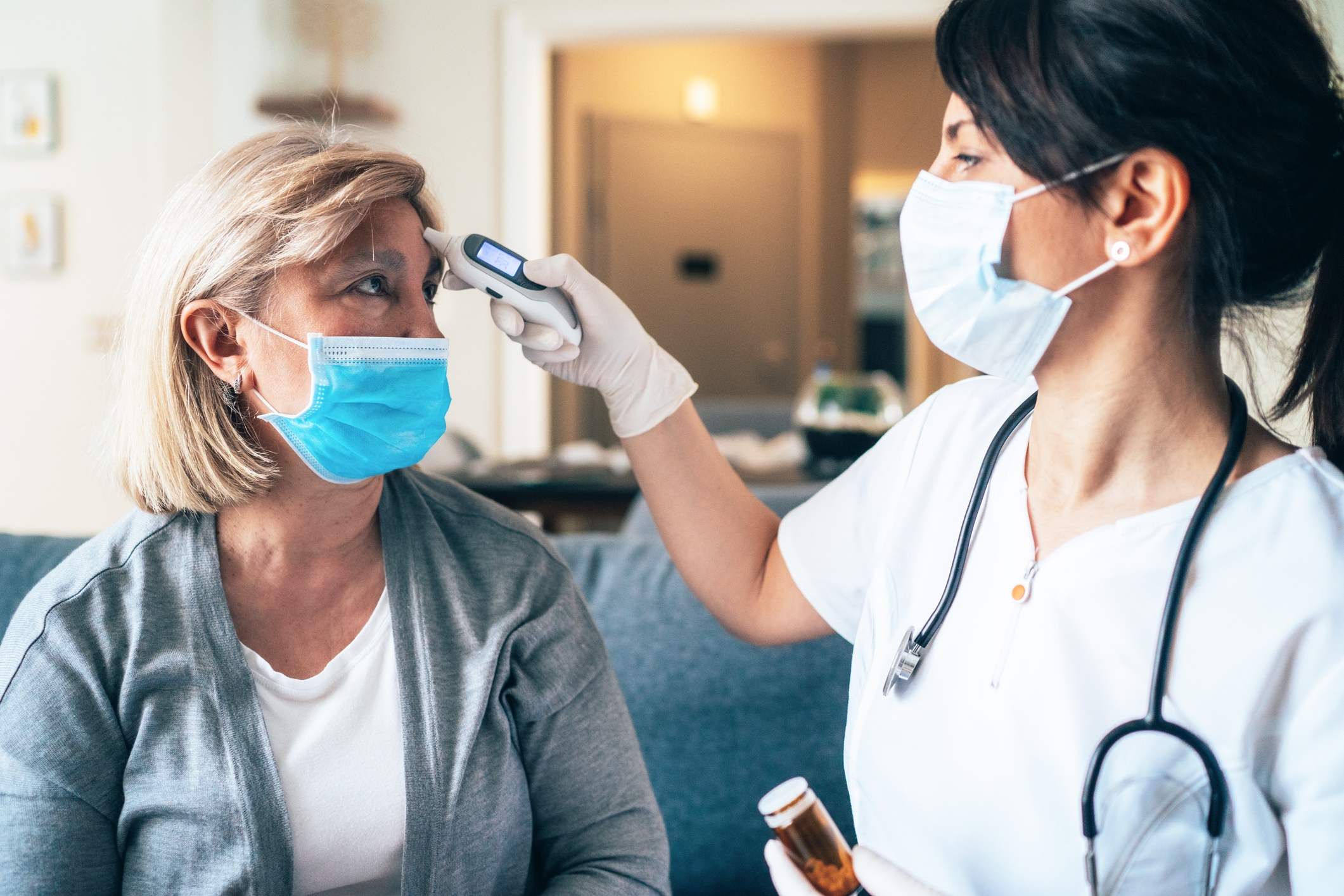As cases of the COVID-19 continue to rise, people concerned for senior loved ones’ safety have good reason to continue to be on high alert. After all, your risk for severe illness from COVID-19 increases with age, as well as having underlying medical conditions, according to the CDC. The CDC notes that among adults with confirmed COVID-19, those aged 65 years and older are more likely to be hospitalized, to be admitted for intensive care, and to die. And 8 out of 10 COVID-19-related deaths reported in the U.S. have been among adults aged 65 years and older.
Here’s what experts say senior caregivers need to know about coronavirus.
What exactly is coronavirus and COVID-19?
Although we’ve referred to this particular virus as coronavirus, the term generally refers to a family of seven viruses that cause a wide variety of illnesses ranging from the common cold to more serious conditions for humans, such as SARS (Severe Acute Respiratory Syndrome) and MERS (Middle East Respiratory Syndrome), explains Rodney Rohde, chair of the clinical laboratory science program and associate dean for research for the College of Health Professions at Texas State University. The new coronavirus, which is called SARS-CoV-2 and causes the illness COVID-19, is genetically related to MERS (which was first reported in Saudi Arabia in 2012) and SARS (which spread to 29 countries between 2002-2003), and during those previous global epidemics, the fatality rate was between 10 and 35%.
Another worry, according to Dr. Gustavo Ferrer, fellow of the American College of Chest Physicians, pulmonologist, founder of the Cleveland Clinic Florida Cough Clinic and a board member for the NCQA’s Geriatric Measurement Advisory Panel: The SARS-CoV-2 has a higher mortality rate than similar viruses. Seeing a virus that’s highly contagious mutate into one that’s potentially deadly is definitely concerning, he notes.
Why are seniors more vulnerable?
Infectious diseases, such as COVID-19, generally pose a greater risk to older people for multiple reasons:
A less effective immune system
Typically, the body mounts an immune response to an invading bacteria or virus. This might not be a problem for young patients as their body fights it off, but it can be devastating for seniors because our immune systems gradually become both weaker and slower as we age, Rohde notes. “Due to those weaker immune systems seen in the elderly — and other immunocompromised people — they can’t mount a strong enough response to ‘clear’ their lungs or ‘catch up’ to neutralizing the virus,” says Rohde.
Chronic conditions
The elderly are also most at risk because, as we age, we have a higher chance of suffering a chronic condition that debilitates the immune system. “This includes diabetes, smoking addiction, chronic respiratory problems and cancer,” says Ferrer.
Living arrangements
The elderly community is more likely to be in close contact with others who have infections, thanks to senior care living environments and frequent doctors’ appointments, he notes.
Certain prescriptions
A side effect of some prescriptions: hindering seniors’ immune systems. “There are many medicines that elderly patients take that might lower their defense mechanisms and the most notorious ones are going to be steroids — anti-inflammatory medications like prednisone, medrol and antirheumatic medications that people take for rheumatoid or severe arthritis, as well as medications that people take for cancer,” he says. Ferrer recommends touching base with the senior’s doctor to discuss the possibility of changing or lowering the dosage.
How seniors can reduce risk of COVID-19 infection
While a vaccine is in development, at present, known medications are ineffective in preventing or treating COVID-19, which means that the best way to preempt contracting the virus at this point is to avoid being in contact with it, according to the CDC. Ferrer recommends that caregivers and seniors take these 11 precautions to avoid the virus and stay healthy.
1. Lean into disinfectants
SARS-CoV-2 spreads when an infected person is within six feet of another individual and a viral droplet becomes airborne when they cough or sneeze — or through contact with an infected surface, Ferrer notes. That said, senior caregivers should practice good hygiene.
The CDC recommends washing hands often with soap for at least 20 seconds, especially before eating and after using the restroom. If soap and water isn’t available, use a hand sanitizer that’s at least 60% alcohol.
2. Be aware of your surroundings and practice physical distancing
Since anyone you’re sharing space with could be potentially be carrying the virus, it’s important to monitor proximity to others. The CDC is also advising affected communities to consider social distancing, which is defined as “remaining out of congregate settings, avoiding local public transportation (e.g., bus, subway, taxi, ride share) and maintaining distance (approximately six feet) from others.”
3. Wear a mask
In addition to social distancing, frequent hand-washing, and cleaning and disinfecting frequently touched surfaces, wearing a cloth face covering is a crucial step for preventing the spread of COVID-19. The CDC notes how the practice will help protect people around you, including those at higher risk of severe illness from the virus. For instance, caregivers are advised to wear a mask around older adults, which would likely reduce seniors’ risk of getting the virus from someone who is infected but has no symptoms.
Masks are not recommended for children under age 2, or anyone who has trouble breathing, is unconscious, incapacitated or otherwise unable to remove the mask without assistance.
That said, the mask could be indicated for someone who is predisposed to respiratory illness and has to go to a doctor’s office or other locations where they’ll be in close proximity to individuals who are sick.
4. Reconsider doctor’s appointments
If you’re the caregiver of a senior who has chronic conditions that could weaken their immune system, Ferrer advises avoiding visiting places that could increase their chances of coming into contact with an infected person. Especially in counties where cases of coronavirus have been identified, he advises that caregivers keep in touch with the senior’s doctors and discuss postponing unnecessary visits.
5. Try nasal sprays
Ferrer highly encourages both caregivers and older loved ones to use over-the-counter saline nasal sprays with xylitol, which can help prevent bacteria from adhering to nasal passages, as a daily defense against COVID-19. He recommends using multiple doses two to three times a day.
6. Support the immune system with hydration and nutrition
Because our sense of thirst diminishes with age, Cleveland Clinic warns that dehydration is an often overlooked health risk in the senior community. According to Mayo Clinic, a general rule of thumb is 3.7 liters of fluids for men and 2.7 liters for women.
Emphasize maintaining a healthy diet, high in antioxidant-rich fruits and vegetables, which is also critical for keeping defenses up, notes Harvard Medical School.
7. Maintain physical activity
Instead of quarantining elderly loved ones to their room or home, encourage them to remain physically active, ideally outside. This will promote good circulation and encourage the body to clear mucus from the airways, lowering the probability of viruses sticking to the lungs, according to Harvard Medical School.
There’s also a mental health benefit: “If we all just become attached to the TV, waiting for something bad to happen, we are not participating in daily life, and psychologically, there is a great likelihood for older people to become depressed or anxious,” Ferrer says.
8. Stop or curb smoking
Smokers and vapers may not realize this habit can increase their chances for infection, Ferrer points out. “Smoking damages the lining of the lungs, which acts as the main defense when the virus first comes into contact with the respiratory system,” he notes.
9. Don’t overlook the flu shot
Ferrer explains that despite COVID-19 fears, the flu is still a prevalent bug elderly patients could come into contact with. “We have a vaccine that has potential for benefiting patients, so it should be a no-brainer to take advantage of that,” says Ferrer.
10. Be aware of “high-touch” surfaces
While this is not thought to be the main way the novel coronavirus spreads, it may be possible that a person can get COVID-19 by touching a surface or object that has the virus on it and then touching their own mouth, nose or possibly their eyes, notes the CDC. That said, “high-touch” areas, which include handrails and touch screens in public places should be avoided whenever possible. Rohde emphasizes being aware of contact with these areas so that you can deliberately avoid touching your face after if you do make contact. “I’ve even talked to others about using your key to touch elevator buttons instead of your fingers,” he says.
11. Curb panic with preparation
Rohde suggests taking a break from watching the news or scrolling through social media if it’s causing anxiety. “Panic will create more problems than solutions,” says Ferrer. “Instead, what we should be is prepared and look for information from trusted resources.”
Consider sites like the CDC, the National Institutes of Health (NIH) and your local Department of Public Health to start.
